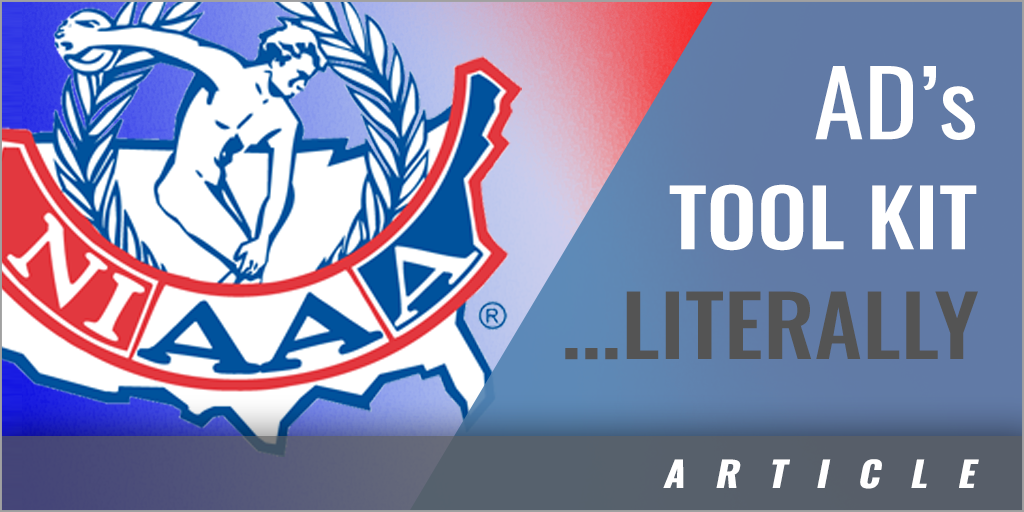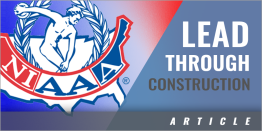|
By: Gary Stevens, CMAA - Thornton Academy (Saco, Maine) During my 26 years serving in the athletic director's role, I have stocked two different types of tool kits to perform a role that is constantly evolving. In addition to being a lifelong learner who is willing to adopt and adapt ideas gleaned from colleagues from throughout the United States, I have also built literal tool kits comprised of everyday items that can serve real purposes in a variety of situations. In turn, I have strategically placed "tool kits" in several places throughout the school campus:
Some of the items stored in these kits have not been used for several years, but they are always available for those "what if..." moments which characterize the athletic director profession and - unfortunately - are more common than they should be. I would encourage any athletic director to think about the types of "what if..." scenarios that could happen on their watches and prepare accordingly. The bad news is that just when one thinks that he or she has every emergency covered, a new problem emerges. The good news is that having the essential equipment in place during times of need can be a public relations coup and help one manage the athletic program more effectively. Power Plays Athletic directors need to be prepared for a variety of other situations in which power systems fail due to human or technological means. In the event of a power outage at either an indoor or outdoor venue, for example, it is essential to have several pieces of equipment at the ready, including:
Similarly, if the facility's lights are operational but the scoreboard has failed, having a back-up panel can be an asset. If it is not feasible, having lower tech solutions (stopwatches or handheld clocks) may be employed in certain situations. The Portable Office Athletic directors are frequently placed in situations where it becomes necessary to serve the public. I have built my own supply depot of miscellaneous equipment and implements that may be used in a wide variety of scenarios. I repurposed a surplus briefcase and now keep it in the trunk of my car. Given that my car is never very far from any of our home outdoor venues, it is, in effect, my portable office. Among those items I keep handy are:
Sometimes even the most routine items typically packed in one's trunk can serve you well in your professional life as well. Living in the northeast, for example, where automobile engine failure is a fact of life in the winter, having booster cables or a car jack at the ready is essential. Similarly, other items commonly stowed for personal use can come in handy, including:
Stepping Out of Your Role Assembling the supplies and tools required to solve logistical problems (and having them available) accomplishes little unless one knows how to use them. Athletic directors must become familiar with a variety of "handyman" responsibilities when additional staff is not available. After all, when something goes wrong, all eyes will be on the athletic director. Being versatile in the role is more than just an asset; it has become essential. Among the many skills that athletic directors should consider adding to their personal repertoires are:
In each of these scenarios, it is important that the athletic director (a) knows where all equipment required to address the problem is stored and (b) has access (i.e., keys) to those spaces. |







